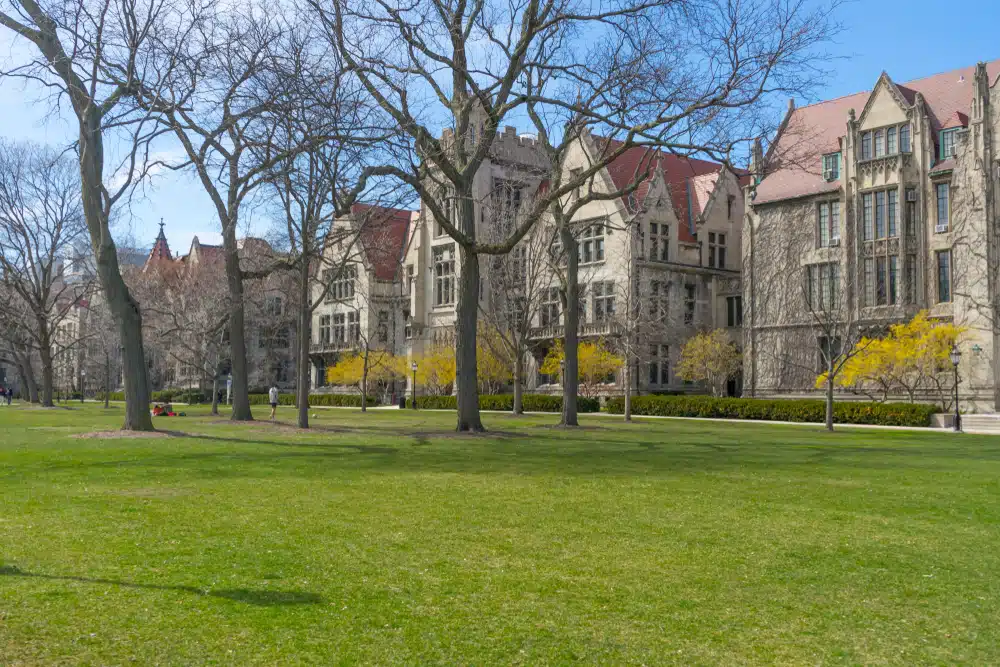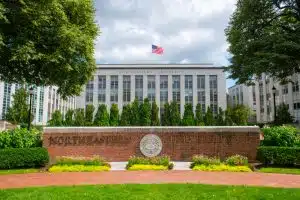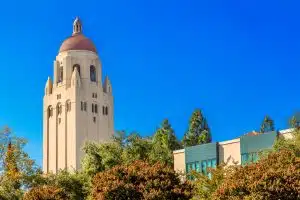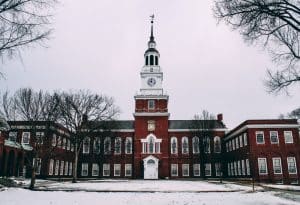Exploring the Unique Traditions of the UChicago
The University of Chicago, renowned for its intellectual rigor and penchant for unconventional thinking, is equally replete with an array of unique traditions. The UChicago traditions amplify the campus aura and weave a vibrant tapestry of stories and experiences that bind generations of students together.
The History of the University of Chicago’s Traditions
The traditions of the University of Chicago are steeped in time, each a testament to its illustrious history. Tracing the origins of these traditions uncovers a treasure trove of fascinating narratives that highlight the University’s steadfast commitment to intellectual curiosity and creative expression.
The annual Scavenger Hunt is one of the most iconic traditions at the UChicago. This tradition dates back to the early years of the university and has become a beloved event that brings students together in a whirlwind of excitement and camaraderie. Teams of students compete in a series of challenges that range from the absurd to the intellectually demanding. The Scavenger Hunt showcases the University’s dedication to intellectual curiosity and fosters a sense of community and teamwork among the participants.
Another tradition that has stood the test of time is the Latke-Hamantash debate. This lively and humorous debate, which takes place every year, explores the eternal question of which is superior: the latke or the hamantash. Faculty members and distinguished guests engage in a spirited discussion, using wit, humor, and scholarly arguments to defend their chosen side. The Latke-Hamantash debate showcases the University’s commitment to intellectual rigor and celebrates the diversity of thought and the freedom to engage in lighthearted discussions.
The Founding Principles and Their Influence on Traditions
The University was founded in 1890, an era of intense intellectual ferment. The founding ethos centered around encouraging debate, fostering a spirit of inquiry, and promoting academic excellence. These principles significantly influenced the traditions that emerged. Be it the Scavenger Hunt or the Latke-Hamantash debate, each practice imprints these early ideals, reminding the University of the University’s commitment to intellectual liberty and creativity.
In addition to the Scavenger Hunt and the Latke-Hamantash debate, UChicago has a rich tapestry of traditions that reflect its founding principles. For example, the annual Summer Breeze concert brings together students, faculty, and staff for an evening of music, food, and celebration. This tradition showcases the University’s commitment to fostering a vibrant campus community and provides a platform for student musicians to showcase their talent.
The annual Festival of the Arts is another tradition that has become an integral part of UChicago’s fabric. This week-long celebration of creativity and expression features art exhibitions, performances, and workshops highlighting the diverse talents of the University’s students and faculty. The Festival of the Arts fosters a sense of artistic exploration and serves as a platform for interdisciplinary collaboration and engagement.
Evolution of Traditions Over the Years
Over the years, UChicago’s traditions have had to adapt and endure. From their origins in the 19th century, they have evolved and diversified, reflecting changing times, shifting student demographics, and trends in academia and society. Despite this evolution, they have retained their core function – fostering a sense of community transcending time, place, and circumstance.
One example of a tradition that has evolved is the annual Scavenger Hunt. While the core concept of the scavenger hunt remains the same, the challenges have become more creative and technologically advanced. In recent years, teams have had to solve complex puzzles using virtual and augmented reality technologies, showcasing the University’s commitment to embracing innovation and cutting-edge technologies.
Another tradition that has evolved is the Latke-Hamantash debate. While the discussion revolves around the age-old question of latke versus hamantash, the arguments have become more nuanced and interdisciplinary. Faculty members from various disciplines now bring unique perspectives to the debate, incorporating insights from sociology, psychology, and cultural studies. This evolution reflects the University’s commitment to interdisciplinary learning and exploring diverse perspectives.
As UChicago continues to grow and adapt to the ever-changing landscape of higher education, its traditions will undoubtedly continue to evolve. New traditions will emerge, reflecting the interests and passions of future generations of students. In contrast, the existing traditions will continue to serve as a bridge between the past and the future, reminding all who participate in them of the University’s rich history and enduring commitment to intellectual curiosity and creative expression.
Unpacking the Scavenger Hunt Tradition
The Scavenger Hunt, or ‘Scav’ as it is popularly known, stands as one of the most unique traditions of the University. It is no mere game or treasure hunt but a marathon exercise in resourcefulness, imagination, and teamwork.
Participants of the Scavenger Hunt embark on a journey that transcends the boundaries of ordinary campus life. They delve into a world where the mundane becomes extraordinary, where mind-bending and whimsical challenges await their creative solutions. This tradition, a hallmark of UChicago, has a rich history that dates back to its humble beginnings in 1987.
Origins of the Scavenger Hunt
The Scavenger Hunt began in 1987, initiated by a group of students yearning for an antidote to the intense academic pressure. In a quest to break free from the confines of their textbooks and classrooms, these visionary students conceived an event that would test their resourcefulness, ignite their imaginations, and foster a sense of camaraderie unlike any other.
What started as a small-scale event has since grown into a mammoth extravaganza that spans several days. With each passing year, the Scavenger Hunt has evolved, adapting to the changing times and embracing new challenges that push the boundaries of what is possible. It has become a testament to the ingenuity and creativity of the University’s student body.
The Impact of the Scavenger Hunt on Student Life
The Scavenger Hunt has a profound impact on student life. Beyond injecting fun and excitement into the academic year, it provides a unique camaraderie, creativity, and competition platform. Participants form teams, forging bonds that transcend the boundaries of their academic disciplines and backgrounds.
During the Scavenger Hunt, the campus comes alive with a palpable energy. Students can be seen huddled together, brainstorming ideas, and mapping out strategies to conquer the challenges that lie ahead. The event fosters community as participants collaborate, share their expertise, and celebrate each other’s victories.
Moreover, the Scavenger Hunt embodies the audacity of thought and the drive for discovery that form the heart of the Chicago experience. It encourages participants to think outside the box, challenge conventions, and push their creativity’s limits. Through this tradition, students develop problem-solving skills and gain a deeper appreciation for the power of teamwork and the importance of embracing diverse perspectives.
As the Scavenger Hunt continues to captivate the hearts and minds of the University’s students, it remains a testament to the spirit of adventure and exploration that defines the institution. Year after year, new generations of students rise to the challenge, leaving their mark on this storied tradition and ensuring its enduring legacy.
The Significance of the Latke-Hamantash Debate
The Latke-Hamantash Debate is another endearing tradition that has become an integral part of UChicago’s culture. What began in 1946 as a humorous exchange between faculty has expanded into an annual event attracting hundreds, all keen to witness this playful battle of wits centered around Jewish delicacies.
As the crisp autumn air settles over the campus, anticipation builds for the much-awaited Latke-Hamantash Debate. Students and faculty eagerly gather in the grand auditorium, their faces adorned with smiles and their stomachs grumbling in anticipation of the delectable treats that await them.
Understanding the Latke-Hamantash Debate
The Debate is not just a simple exchange of opinions but a mock academic showdown involving faculty from diverse disciplines championing the potato pancake (latke) or the hamentashen (a triangular fruit-filled pastry) – all in good humor. The stage is set with intellectual curiosity and lighthearted banter as professors take their positions behind their podiums, armed with compelling arguments and theatrical flair.
With each presenter’s eloquent defense of their chosen delicacy, the audience is transported into a world where food becomes a vessel for intellectual discourse. The potato pancake enthusiasts extol the virtues of its crispy exterior and soft, savory interior. At the same time, the hamentashen advocates celebrate the pastry’s sweet and fruity filling, encased in a delicate, buttery crust.
The Cultural Importance of the Debate
While the Debate may seem light-hearted, it holds a more profound cultural significance within the University community. It fosters camaraderie among faculty and students, breaking the ice between different academic disciplines and forging connections that transcend the boundaries of classrooms and lecture halls.
As the debate unfolds, laughter echoes through the auditorium, bridging the gaps between various departments and creating a sense of unity. The event catalyzes interdisciplinary conversations, encouraging individuals from different fields of study to engage in meaningful dialogue and appreciate the diverse perspectives that enrich the academic landscape.
Moreover, the Latke-Hamantash Debate serves as a reminder of the University’s commitment to free thought and intellectual exploration. It embodies the values of respect for diversity and the importance of holding dialogue in a spirit of openness and respect. By embracing humor and celebrating the cultural traditions associated with these culinary delights, the Debate reinforces that knowledge and understanding can be achieved through serious discourse and light-hearted exchanges.
As the evening draws to a close, the audience leaves the auditorium with a renewed sense of community and a deeper appreciation for the power of humor in fostering connections. The Latke-Hamantash Debate has become a cherished tradition and a testament to the University’s commitment to intellectual growth, cultural celebration, and the joy of shared experiences.
The Role of Doc Films in University Culture
UChicago also cherishes its tradition of film appreciation through Doc Films, the oldest student-run film society in the country.
Doc Films, established in 1940 as the International House Cinema, has since grown into a cultural institution that significantly shapes the University of Chicago’s film culture. With its rich history and commitment to showcasing a diverse range of films worldwide, Doc Films has become a beloved part of the university experience.
The Birth and Growth of Doc Films
When Doc Films first emerged as the International House Cinema in 1940, it was a humble student-run organization passionate about film. Over the years, however, it has evolved into a powerhouse of film appreciation, attracting students and film enthusiasts from the wider community.
What started as a small film society has now become a cultural institution boasting an impressive lineup of films, film festivals, and special events. Doc Films has become a hub for cinephiles, offering a platform for emerging and established filmmakers to showcase their work.
How Doc Films Shapes the University Experience
Doc Films plays a crucial role in shaping the vibrant University of Chicago life by providing a platform for film amateurs and enthusiasts alike to interact, discuss, and appreciate the art of film. It serves as a meeting ground for students from various disciplines, fostering a sense of community and intellectual exchange.
Doc Films exposes students to various cinematic styles, genres, and cultures through carefully curated film screenings. This exposure broadens their horizons and encourages critical thinking and cultural understanding.
Furthermore, Doc Films enriches the campus culture by organizing film festivals celebrating underrepresented filmmakers’ works and highlighting critical social issues. These festivals serve as catalysts for meaningful conversations and inspire students to engage with topics beyond the confines of the classroom.
Doc Films play a significant role in shaping students’ intellectual and aesthetic sensibilities by providing a platform for film education and appreciation. It encourages them to explore the world of cinema, fostering a lifelong love for the art form.
In conclusion, Doc Films has become integral to the University of Chicago’s cultural landscape. Its commitment to showcasing diverse films, fostering community engagement, and promoting film education makes it a vital component of the university experience. Whether you are a film enthusiast or simply curious about the power of cinema, Doc Films offers a space for everyone to come together and celebrate the magic of film.
The Influence of the University’s Traditions on Alumni
The influence of these traditions extends far beyond campus, leaving an indelible mark on the lives of alumni.
Maintaining Connection Through Traditions
Alumni often maintain strong ties through the shared experience of these traditions. Whether engaging in the Scavenger Hunt with fond nostalgia or reminiscing the spirited debates over Latke and Hamantash, alumni keep their UChicago affinity alive through these shared memories and experiences.
Traditions as a Part of Alumni Identity
The unique traditions of UChicago often become integral to the identity of its alumni. These traditions, having shaped their experience of University life, become inseparable from their understanding and appreciation of their Chicago days. They represent a collective memory, a binding factor that links past, present, and future generations of students at the University of Chicago.
If you want to discuss the matter to a greater extent or inquire about college admissions, look no further! Our experts here at AdmissionSight can help you! Here at AdmissionSight, we have over a decade’s worth of experience guiding students through the competitive admissions process to get accepted to the top universities in the world. Feel free to set up an appointment today to book your initial consultation.








































